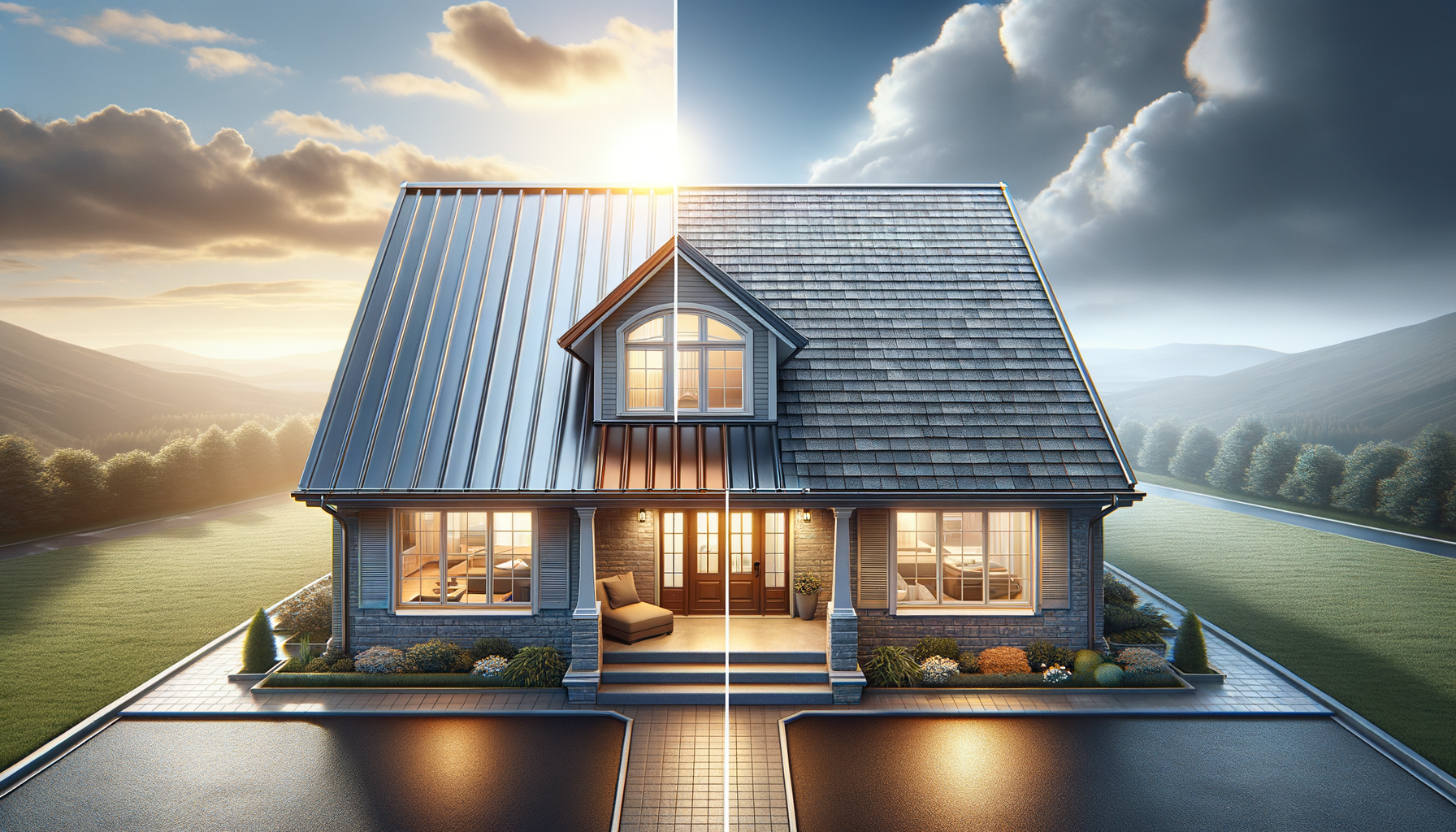
Metal vs. Asphalt Shingles: Which Is One of the Top Options?
Understanding the Basics: Metal vs. Asphalt Shingles
When it comes to roofing, the choice between metal and asphalt shingles is a significant decision that can affect your home’s longevity, energy efficiency, and curb appeal. Metal roofing is typically made from materials like steel, aluminum, or copper, offering a sleek and modern look. On the other hand, asphalt shingles are made from a base of fiberglass or organic material, coated with asphalt and mineral granules, providing a more traditional appearance.
Metal roofs are known for their durability, often lasting 40 to 70 years, depending on the material. They are resistant to harsh weather conditions, including high winds and heavy snow. Asphalt shingles, while generally more affordable, have a shorter lifespan of 15 to 30 years. They are susceptible to damage from extreme weather but are easier to repair and replace.
Both options have their pros and cons, and the decision often comes down to budget, aesthetic preference, and the specific needs of your home. A detailed comparison can help you make an informed choice that aligns with your priorities.
Cost Considerations: Initial Investment vs. Long-Term Savings
The initial cost of installing a metal roof is generally higher than that of asphalt shingles. Metal roofing can cost two to three times more than asphalt, depending on the type of metal and the complexity of the installation. However, it’s essential to consider the long-term savings associated with metal roofing. Its durability means fewer repairs and replacements over time, which can offset the initial investment.
Asphalt shingles, while more budget-friendly upfront, may require more frequent maintenance and replacement, leading to higher long-term costs. Additionally, metal roofs can provide energy savings by reflecting solar heat, reducing cooling costs in hot climates. This energy efficiency can contribute to lower utility bills, offering potential savings over the roof’s lifespan.
Ultimately, the choice between metal and asphalt shingles should be based on a careful evaluation of both short-term and long-term financial implications.
Environmental Impact: Sustainability and Energy Efficiency
Environmental considerations are becoming increasingly important in home improvement decisions. Metal roofing is often praised for its sustainability. Most metal roofs are made from recycled materials and are fully recyclable at the end of their life. This reduces the environmental impact and contributes to a more sustainable building practice.
Asphalt shingles, while recyclable, often end up in landfills due to the complexity of the recycling process. However, manufacturers are working towards more sustainable practices, such as using recycled materials in production and improving recycling methods.
In terms of energy efficiency, metal roofs reflect solar radiant heat, which can reduce cooling costs by up to 25%. This makes them an excellent choice for homeowners in warmer climates. Asphalt shingles absorb heat, which can increase cooling demands during summer months. Evaluating the environmental impact and energy efficiency of your roofing choice can significantly influence your decision.
Aesthetic Appeal: Matching Your Home’s Style
The aesthetic appeal of your roof is an important factor, as it significantly contributes to your home’s overall look and curb appeal. Metal roofs offer a modern and sleek appearance, available in a variety of colors and finishes. They can mimic the look of traditional shingles, slate, or even wood, providing versatility in design.
Asphalt shingles offer a classic and traditional look, with a wide range of colors and styles to match any home. They are particularly popular in neighborhoods with a uniform architectural style, as they blend seamlessly with other homes.
When choosing a roofing material, consider the architectural style of your home and the impression you want to create. Both metal and asphalt shingles offer options that can enhance your home’s aesthetic, but the choice will depend on your personal taste and the design goals for your property.
Installation and Maintenance: Ease and Expertise
The installation process and maintenance requirements are crucial factors in choosing roofing materials. Metal roofing requires specialized skills and tools for installation, which can add to the overall cost. However, once installed, metal roofs require minimal maintenance, thanks to their durability and resistance to common roofing issues like rot and insect damage.
Asphalt shingles are easier and quicker to install, making them a popular choice for DIY enthusiasts and contractors alike. They do require regular maintenance to check for damage, especially after severe weather events. Replacing damaged shingles is relatively straightforward, but the frequency of repairs can be higher compared to metal roofing.
Consider the installation and maintenance factors when choosing between metal and asphalt shingles. The ease of installation and the level of expertise required can influence your decision, as well as the ongoing maintenance needs of each material.


